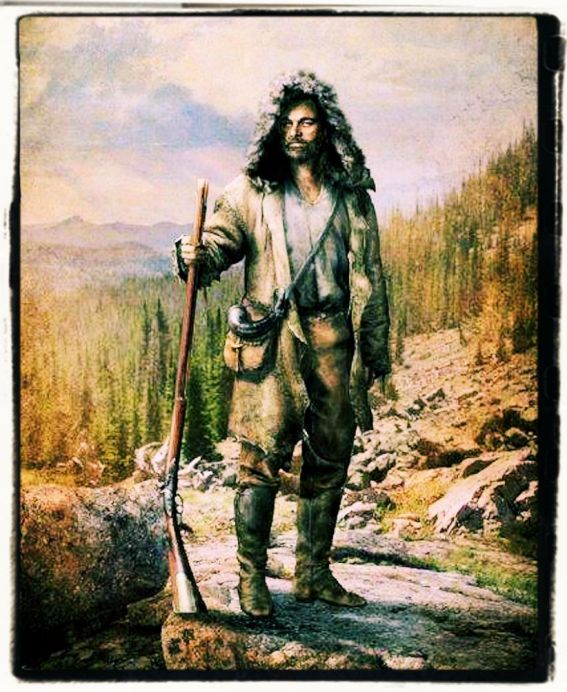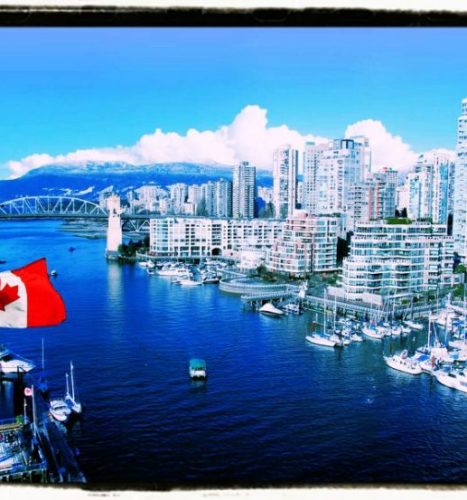
The land was first claimed for King Henry VII of England by John Cabot when he landed on the Canadian Eastern Coast in 1497, just five years after Columbus famous voyage. Then came the French explorers who founded the first permanent settlement, and Europeans have been coming ever since.
Why, in the face of such severe climate, did so many Europeans come to Canada? Their reasons were many, but the simple fact that fur hats were high fashion in London and Paris brought a large number of fur trappers in search of the beaver, that symbol of Canada which provided the fur pelts to please European society.
This has given Canadians what might be called an ‘identity crisis’, a constantly recurring theme in their writing, politics and everyday life.
The colonies of Canada were brought together by the Fathers of Confederation whose mother was necessity, and with the signing of the British North America Act, Canada was born.
Fathers of Confederation, traditionally the 36 men who represented British North American colonies at one or more of the conferences, Charlottetown, Prince Edward Island (September 1864), Quebec (October 1864), and London (1866–67) that lead to the creation of the Dominion of Canada on July 1, 1867.

Most Europeans cannot grasp the size of Canada. Halifax in Nova Scotia is closer to London in England than it is to Vancouver in British Columbia… popularly believed to be in South America.
Now Canada is a bi-lingual country in which most people speak English and think they can speak French, and many people speak French but have learned English in self-defence against the French of the English people. Yes, to a Quebecois any other Canadian is English. That is to say his parents may have been German, Ukrainian, Scandinavian, Dutch, Russian or even North American Indian, but generically he is English because he does not speak French and therefore is not Canadian.
Carl William Brown
January 1st, 1769
To Miss Rivers, Clarges Street, London
It is with great difficulty I breathe. my dear; the cold is so amazingly intense as almost to stop respiration. The cold is beyond all thermometers here. The strongest wine freezes in a room which has a stove in it; even brandy is thickened to a consistency of oil.
I must venture to Quebec tomorrow, or have company at home: amusements are here necessary to life; we must be jovial or the blood will freeze in our veins. I no longer wonder the elegant arts are unknown here: the rigor (B.E. rigour) of the climate suspends the powers of the understanding: what then must become of those of the imagination?
Those who expect to see “a new Athens rising near the pole” will find themselves extremely disappointed. Genius will never mount high, where the faculties of the mind are benumbed half the year.

It’s a Canadian custom, calculated I suppose for the climate, for the young men to visit all the ladies on New Year’s Day who sit dressed to be kissed: I assure you however that our kisses could not warm them; but we were obliged, to our eternal disgrace, to call in raspberry brandy as an auxiliary. You would have died to see the men; they look like so many bears all wrapped up in furs from head to foot; you see nothing of the human form appear, but the tips of a nose.
Do you know what makes me chatter” so this morning? Papa has made me take some excellent liqueur; it’s the mode here: all the Canadian ladies take a little, which makes them so coquet and agreeable. Certainly hrandy makes o woman talk like an angel. Adieu!
Yoursr
A. Fermor
from The History of Emily Montague by Frances Brooke (1724-1789)

Why, in the face of such severe climate, did so many Europeans come to Canada? Their reasons were many, but the simple fact that fur hats were high fashion in London and Paris brought a large number of fur trappers in search of the beaver – that symbol of Canada which provided the fur pelts to please European society. Fur trappers went deep into the wilds to find the beavers. It was a lonely job and many of the men looked for Indian wives to comfort them during the long Canadian winters.
Getting the valuable fur pelts from the Canadian wilderness to Europe was not an easy job. French Canadians, known as Voyageurs, would paddle canoes from Montreal through the great rivers and lakes deep into the continent to pick up the furs and paddle back with them. It was one of the most arduous jobs imaginable.
Every new thing that I have learned about the Canadian voyageur seems to me more incredible than the last. The fur pelts had to be paid for in trade goods conveyed three-quarters of the way across the continent in birch bark canoes. Then the pay loads had to be paddled and portaged back to Montreal over a distance of nearly 5,000 kilometres. On the 36 Portages, the load that had to be moved, divided up among the crew, usually totalled more than 200 kilos per man, not counting the canoe. They did not walk with these loads; they carried them at a dog trot. Because they worked at the height of the insect season, the voyageurs were encased over the carrying places in humming, stinging envelopes of mosquitoes and blackflies.

At Fort William the Montreal men ended their runs; they had a brief time for carousing and eating, then re-loaded their canoes with the furs and set out on the return trail for Montreal. If they did not get back before winter, they were frozen in and had to survive as best they could. Though there were many instances of river men keeping on working into late middle age, the voyageurs as a rule died young. They were lucky if they were not double-ruptured and suffering from spastic backs before they were forty. I can only say that if I, physically, am a man, the voyageur, physically, was a superman.
from The Rivers That Made a Nation by Hugh MacLennan
To find out more about Canada you can follow these links:

